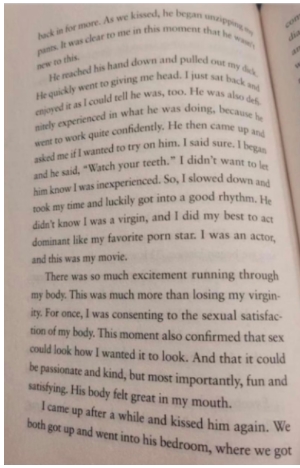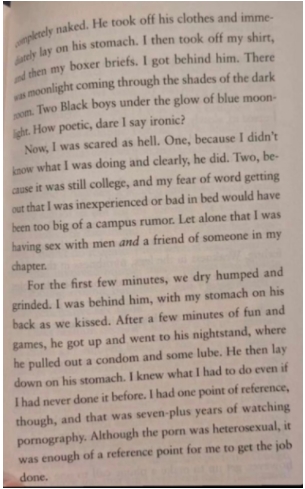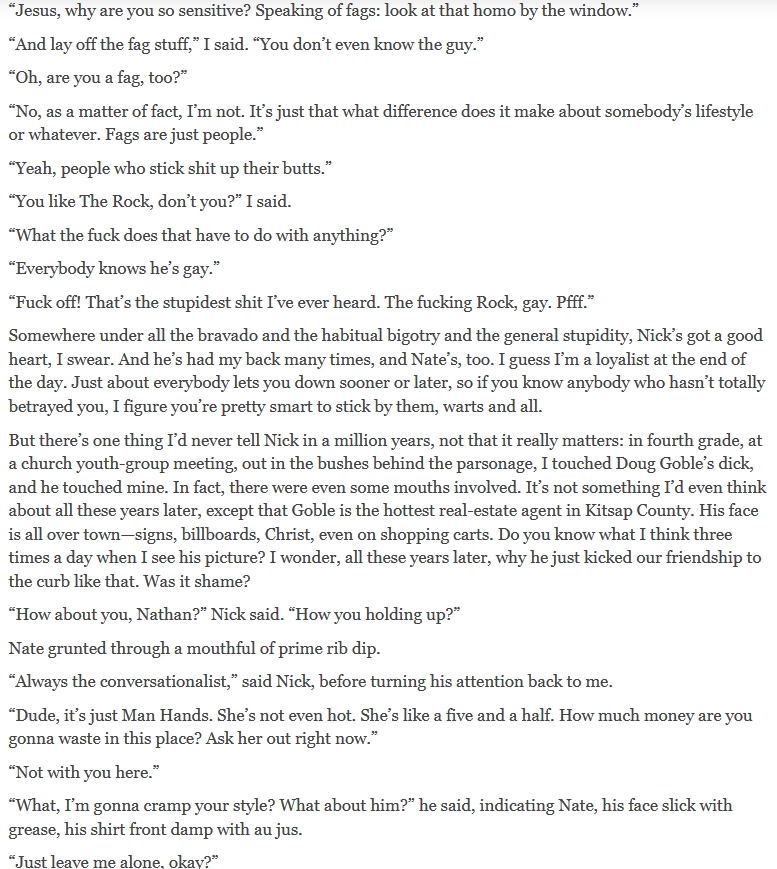Parents Get Sexualized Books Removed From Texas Schools, Media And Teachers Push To Bring Them Back
Many parents are fed up with the kinds of material their children being used in curriculum and placed in their school libraries. Some are so fed up, they are taking action, as parents in the Lone Star State have worked to earmark numerous Texas school books for removal from school curriculum. As parents begin to win, educators and the news media are beginning to push back against them.
Gone from the Katy Independent School District (KISD) library shelves is Jack of Hearts (and Other Parts) by Lev A.C. Rosen. This book, which the student read last year, tells the story of a gay teenager who has no problem talking about his very adventurous sex life. Parents accuse it of being borderline pornography. Other books which contain similarly sexualized topics have also been removed from school curriculums and libraries. Those include The Handsome Girl and Her Beautiful Boy by B.T. Gottfred and All Boys Aren’t Blue by George M. Johnson.

Activists and sympathetic news media outlets who want those books in schools to influence children in, what they believe, is a positive direction, are now accusing parents of banning books. However, it’s not clear that they are actually banned. Kids aren’t being stopped from bringing their own copy to school, for instance, and the books are widely available to purchase everywhere books are sold. They are no more banned than every other book in the world which wouldn’t fit in the school’s library is. Schools make specific decisions about which books will be most beneficial for children, and those are the books they give them in class. Deciding not to use these books in favor of something else isn’t exactly banning, it’s more like the normal business of schools. The difference here is that in this case, for the first time in a long time, parents have had a say in what’s being used to influence their kids.
News media outlets, like NBC, are now working hard to find sympathetic figures to make the case that libraries were once thought of as a “safe haven” for students who identify as queer and accuse opposing parents of turning school libraries into battlegrounds. “As I’ve struggled with my own identity as a queer person, it’s been really, really important to me that I have access to these books,” said one Texas female student to NBC News. “And I’m sure it’s really important to other queer kids. You should be able to see yourself reflected on the page.”
From statements like that one you might think these stampeding parents have somehow gotten all LGBTQ content removed from libraries. However, it seems only a small number of specific books have been removed. Those books are largely being challenged by parents not because they contain LGBT themes, but because they contain extreme depictions of sexual situations which they feel kids may not be ready for. Numerous other books on those topics are still available in most public school libraries.
The Handsome Girl’s removal came after a Katy parent spoke about the Texas school book, which tells the story of gender nonbinary teens, which also includes explicit descriptions of sex. All Boys Aren’t Blue’s removal was asked for after parents revealed that the book contains explicit descriptions of molestation and sex between two men. Take look…


In total, over the past few months, KISD has removed nine books. The three mentioned above as well as Out of Darkness by Ashley Hope Pérez, Losing the Girl: Book 1 by Mari Naomi, Me and Earl and the Dying Girl by Jesse Andrews, The Nerdy and the Dirty by B.T. Gottfred, and Forever for a Year also by B.T. Gottfred. Another book, which has seen a lot of discussions and eventual removal from many school libraries is Lawn Boy by Jonathan Evison.
The book was brought to the attention of the Leander (Texas) School Board during their recent meeting and says her son brought the book home from the Leander High School library. She then proceeded to read a few excerpts from the book. On page 19, she says, the book reads, “Not that it really matters, in fourth grade at a church youth group meeting out in the bushes, I touched Doug Goebbels dick, and he touched mine. In fact, there was even some mouths involved.”
Here’s the excerpt used as an example…

She then jumps to page 91 of the book and continues, “What if I told you I touched another guy’s dick? What if I told you I sucked it? I was ten years old, but it’s true. I put Doug Goebbels’ dick in my mouth. I was in fourth grade, it was no big deal. He sucked mine too. And you know what, it wasn’t terrible.”
The parent went on to read a couple more passages from the book to clearly make her case. Then she presented the school board with a question: “What sort of diversity are you intending to teach my child with material like this?” What indeed. She then asked of the Texas school books in general, “What sort of educational environment do you think the plethora of sexually graphic books selections create for my children or for any child for that matter? I won’t go into my fourth-grade daughter but we don’t, this is not a thing for fourth graders. Who normalizes sex acts between fourth graders? I’ll tell you who. Pedophiles.”
There are two sides to this story though. The ones who find the material pornographic in nature and the ones who believe these Texas school books should be made available for kids who are seeking answers about themselves. Carolyn Foote is a retired Austin school librarian who is helping lead a campaign called #FReadom.
“There have always been efforts to censor books, but what we’re seeing right now is frankly unprecedented,” Foote told NBC News. But she made a point that many have made over the past whether it concerns questionable movies with questionable material or novels with the same intent. “A library is a place of voluntary inquiry. That means when a student walks in, they’re not forced to check out a book that they or their parents find objectionable. But they also don’t have authority to say what books should or shouldn’t be available to other students.”
Foote isn’t the only one siding on keeping these sexualized books in public-school libraries. Ten former or current Texas school librarians have described their growing fear that parents will start attacking them on social media. They also now fear that they could be brought up on criminal charges for providing pornographic material to underaged children. Laws prohibiting adults from giving children porn exist for good reason, and many believe there’s a strong case to be made that some of these books (some of which contain graphic pictures of sexual acts) do qualify as pornography under the existing United States laws.
Sarah Chase is a longtime librarian at Carroll Senior High School and is now retired, something she didn’t plan on doing as soon as she did. “I’m no saint,” explained Chase. “I got out because I was afraid to stand up to the attacks. I didn’t want to get caught in somebody’s snare. Who wants to be called a pornographer? Who wants to be accused of being a pedophile or reported to the police for putting a book in a kid’s hand?” Parents in favor of removing the books say this is exactly the reaction those laws are meant to elicit. If you’re not sure if what you’re giving a kid is pornography, then why give it at all? They say it doesn’t seem like a line anyone would want to approach.
Many of the parents protesting over the material insist it has nothing to do with the LBGTQ+ representation in the stories, but instead the sexually graphic material included in these books. They are even pointing out that some of the Texas school books they are challenging include heterosexual characters in explicit heterosexual sex scenes. Is this pornography or not? We aren’t here to decide that, but we can tell you that many of the images in the questioned books are so graphic, we can’t safely publish them in this article. If you want to see some of them, go here.
The authors of the removed books fully deny that the material they present meets the legal definition of pornography. Even though some of the material they write (or illustrate) is extremely sexually explicit, they feel the material is presented as a broader narrative. They claim the sexually explicit material they create is not intended for any type of sexual stimulation. It’s unclear whether the laws on distributing pornography to minors make exceptions for pornography which serves a broader narrative. As parents begin to take legal action, we’ll probably find out.



